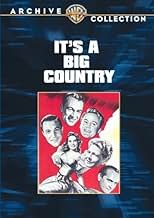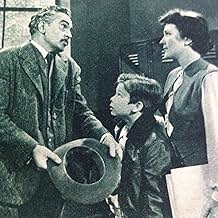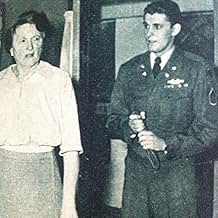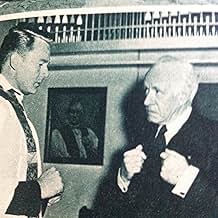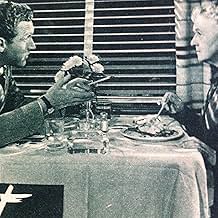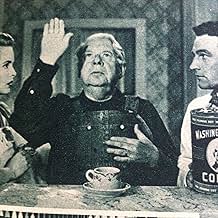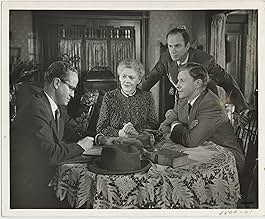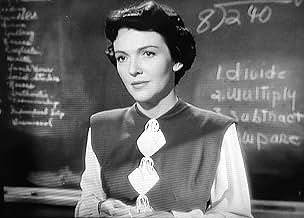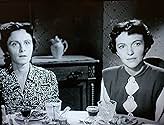Comprised of eight unrelated episodes of inconsistent quality, this anthology piece of American propaganda features some of MGM Studios' best directors, screenwriters and actors; it is narra... Read allComprised of eight unrelated episodes of inconsistent quality, this anthology piece of American propaganda features some of MGM Studios' best directors, screenwriters and actors; it is narrated by Louis Calhern.Comprised of eight unrelated episodes of inconsistent quality, this anthology piece of American propaganda features some of MGM Studios' best directors, screenwriters and actors; it is narrated by Louis Calhern.
- Miss Coleman
- (as Nancy Davis)
- Joey Esposito
- (as Bobby Hyatt)
In the first vignette, William Powell and James Whitmore get into an argument on a train about what America really means. It's a bit boring and not the best one to start with, but have no fear, it only gets better from then on out. In the second segment, Ethel Barrymore stars as a lonely, old Irishwoman who merely wants to be known. It's a very touching segment, as she appeals to newspaper men George Murphy and Keenan Wynn to include them in the US Census.
Next up is S.Z. Sakall, a Hungarian with five daughters who harbors prejudice towards her eldest daughter's new boyfriend, a Greek. Janet Leigh is about as Hungarian as Gene Kelly is Greek, but it's the story that's important. In America, different ethnicities come together in the great melting pot, even though sometimes the parents aren't very supportive to start with.
There's also an interesting documentary portion of the film that showcases African-Americans. Real footage is shown of black units of every branch of the armed forces, as well as commanders and recipients of medals. It seems pretty dated by today's standards, but at the time, it was noteworthy. At a point in American cinema when black actors were finally being cast in important, inoffensive roles, it was a natural step for this segment of an Americana movie to include prominent black athletes, entertainers, politicians, doctors, college students, and even Mother of the Year. In 1949's Home of the Brave, James Edwards's character repeats, "I'm just like everyone else!" emphatically, to drive it home to the audience that African-Americans fought and died for their country, just like everyone else. In It's a Big Country, narrator Louis Calhern gives the same message.
Gary Cooper talks directly into the camera in the Wild West segment, as he explains that Texas is full of wide open spaces, cattle, cowboys, and oil wells. It's quite funny to see him convincing the audience that he's the great American cowboy when he owes that persona to Randolph Scott, who made more western movies than even John Wayne! Native Southerner Scottie was hired back in 1929 to teach Gary how to talk with a Southern accent. Alas, since Scottie didn't belong to MGM, he wasn't included in this anthology.
MGM was home to Lewis Stone, and in fact, he held the longest contract in MGM history, from 1920 to 1952. In his vignette, he plays a retired minister in Washington making way for newcomer Van Johnson. Van is so preoccupied in delivering a speech worthy of the President of the United States-who never shows up-that he's not paying attention to his flock. Lew's job is to give him advice, and also to keep the audience from getting bored out of their skulls.
Marjorie Main isn't given a very lengthy vignette, but it's quite touching. She plays a grieving mother visited by soldier Keefe Brasselle, a Jewish friend of her son's. At first, she's hostile towards him, but when he reads her son's last letter before his death, she softens. I'm sure she was very happy to act in it, since she wasn't usually given a chance to show off her acting chops.
The last vignette, as is often the case, is the best. I didn't recognize him, but I'll give you a heads up: Fredric March plays an Italian and gives Charles Laughton a run for his money! He's the patriarch of a large Italian-American family in San Francisco, and the father of young Bobby Hyatt. Bobby's schoolteacher Nancy Davis finds out that his eyesight is poor, but Freddie is too proud to let his son wear glasses. He's absolutely hilarious, trying endlessly to prove his point and being too stubborn to understand the bigger picture. If you don't know it's Fredric March under the mustache and wild hair, you'll think he's a real Italian; his accent is great, and his emotions are right on his sleeve.
DLM Warning: If you suffer from vertigo or dizzy spells, like my mom does, this movie might not be your friend. During Gary Cooper's segment, the camera frequently swishes to the left and right, and that will make you sick. In other words, "Don't Look, Mom!"
- HotToastyRag
- Jan 18, 2020
- Permalink
Storyline
Did you know
- TriviaWhen she discovers that Icarus Xenophon (Gene Kelly) is Greek, Janet Leigh does a spot-on imitation of S.Z. "Cuddles" Sakall's (S.Z. Sakall) trademark response to upsetting news, placing her palms against her cheeks and emitting an exasperated "Sheeeesh!"
- GoofsWhen the census taker asks Ethel Barrymore her name, she replies "Mrs. Brian Patrick Riordan" and he writes it down. Always with censuses, a woman's given name is entered.
- Quotes
Rosa Szabo Xenophon: Marry me? You don't know anything about me.
Icarus Xenophon: You're a girl. You're pretty and you're modest. What else is there to know?
- ConnectionsEdited into A Letter from a Soldier (1951)
- How long is It's a Big Country: An American Anthology?Powered by Alexa
Details
- Release date
- Country of origin
- Languages
- Also known as
- It's a Big Country
- Filming locations
- 1772 Church Street NW, Washington, District of Columbia, USA(St. Thomas Episcopal Church - where Rev. Birch was assigned)
- Production company
- See more company credits at IMDbPro
Box office
- Budget
- $1,013,000 (estimated)
- Runtime1 hour 29 minutes
- Color
- Aspect ratio
- 1.37 : 1
Contribute to this page




















